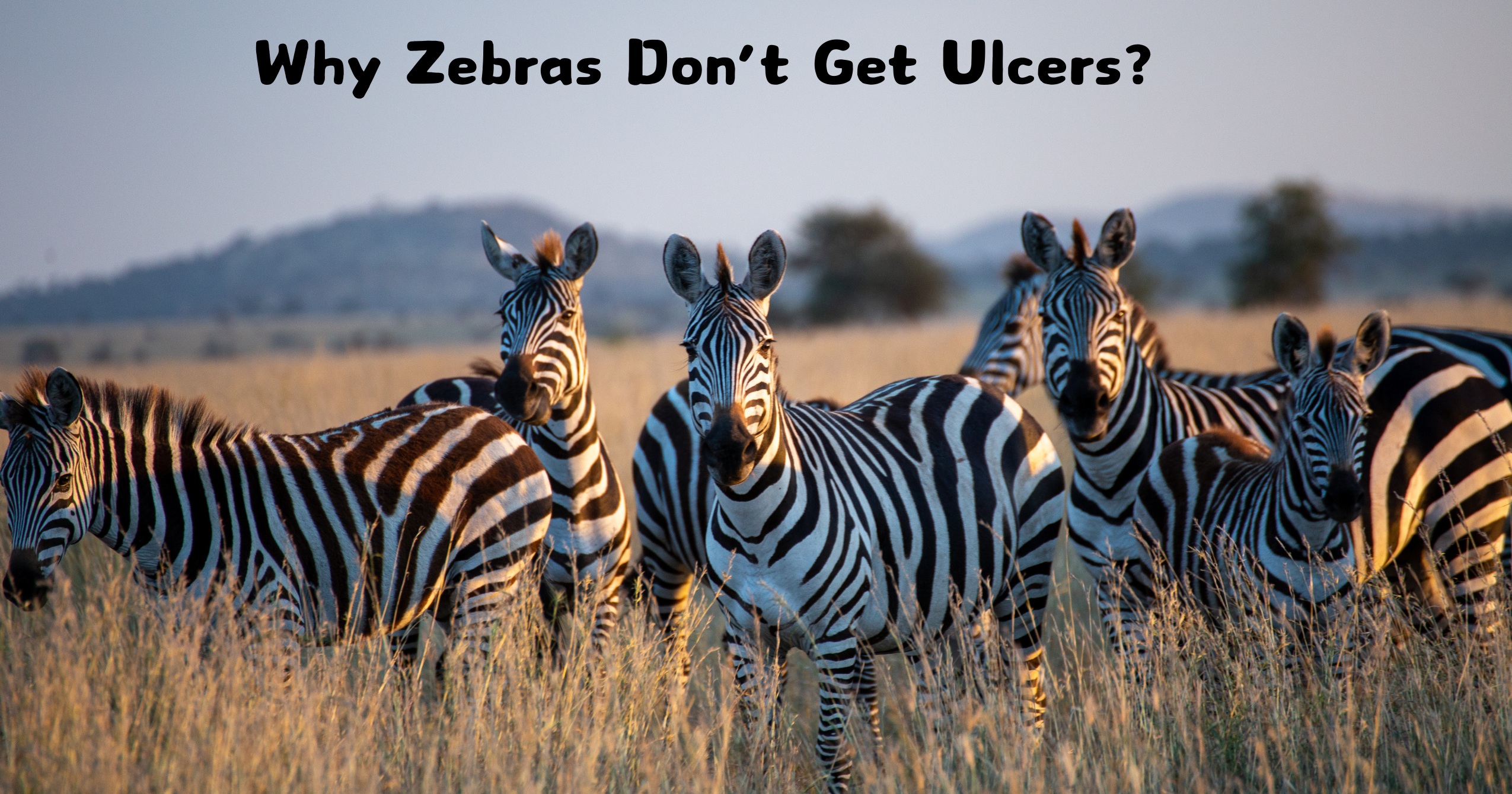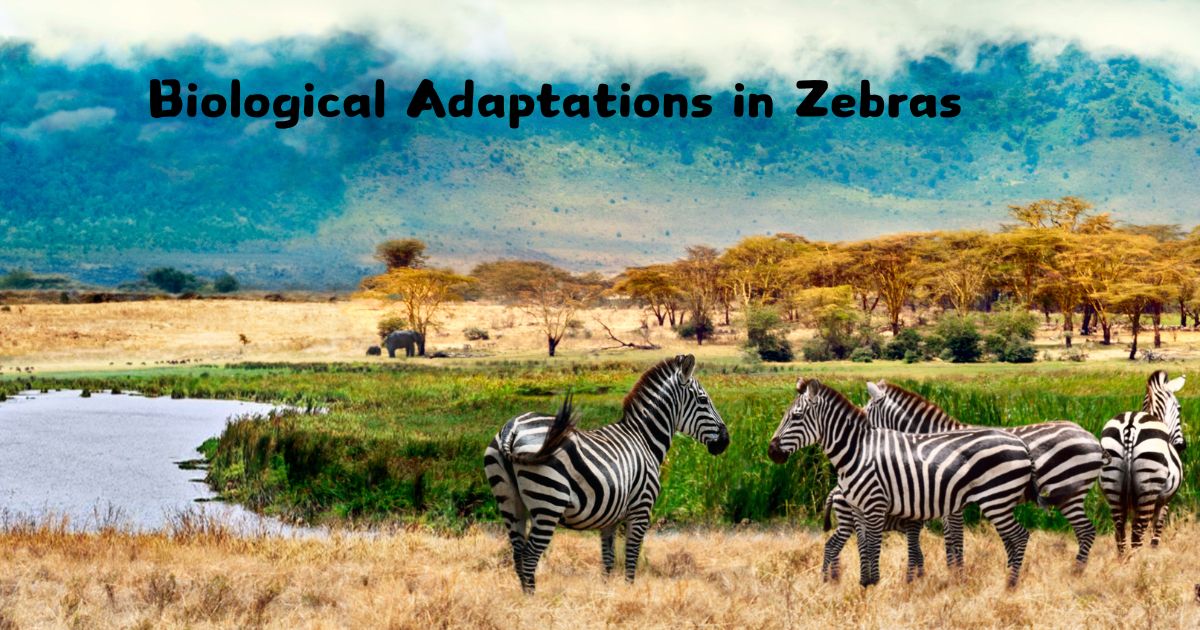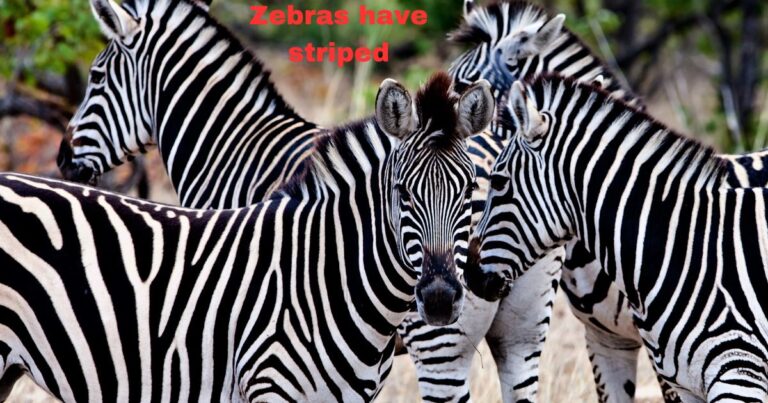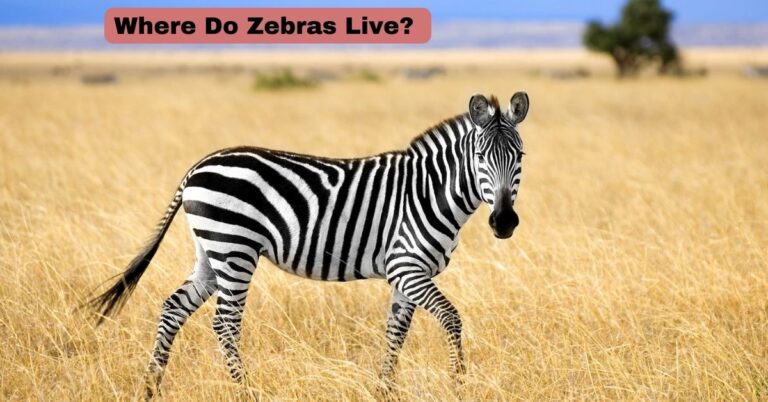
Introduction
Why Zebras Don’t Get Ulcers?
Zebras are animals that live in the wild, frequently encompassed by hunters like lions and cheetahs. Regardless of confronting steady dangers to their lives, zebras don’t foster ulcers, a typical pressure related sickness in people. Understanding the reason why zebras don’t get ulcers can offer experiences into how various species oversee pressure and its consequences for the body.
Table for Why Zebras Don’t Get Ulcers?
| Aspect | Zebras | Humans |
|---|---|---|
| Type of Stress Experienced | Acute stress (short-term, immediate threat) | Chronic stress (long-term, ongoing concerns) |
| Primary Cause of Stress | Predators and immediate survival threats | Work, personal life, future events, past experiences |
| Stress Response System | Efficient and quick activation and deactivation of the HPA axis | Prolonged activation of the HPA axis due to ongoing stressors |
| Cortisol Regulation | Rapid increase during danger and quick decrease after | Continual high levels due to chronic stress |
| Behavior After Stress | Returns to normal activities like grazing and resting | Often remains in a state of stress or worry |
| Focus of Attention | Present moment (immediate survival) | Future concerns and past events |
| Likelihood of Developing Ulcers | Low, due to short-term stress and efficient recovery | High, due to chronic stress and prolonged cortisol release |
| Biological Adaptations | Designed for quick stress response and recovery | Prone to prolonged stress, leading to health issues |
| Implications for Health | Low risk of stress-related diseases like ulcers | High risk of stress-related diseases, including ulcers |
| Key Lesson | Stress is managed efficiently and only in response to immediate threats | Need for effective stress management and focus on present moment to reduce health risks |
Key Takeaways
- Zebras experience stress from predators but avoid ulcers.
- Ulcers in humans are linked to chronic stress.
- Zebras handle stress as short-term and recover quickly.
- Human diets can increase the risk of ulcers.
- Mindfulness can help manage human stress.
- Zebras live in the present, reducing stress impacts.
- Chronic stress in humans leads to health issues.
- A balanced diet supports stomach health.
- Stress management can prevent ulcers.
- Zebras show how to avoid stress-related illnesses.
Understanding Ulcers in Humans
In people, ulcers are excruciating wounds that shape in the overlaying of the stomach or small digestive device. They are in many instances brought approximately by way of an unevenness between belly corrosive and the defensive physical fluid that traces the belly. At the factor while this equilibrium is disturbed, the corrosive can break the belly lining, causing ulcers. Stress is a critical discern the development of ulcers, as it is able to increment belly corrosive advent and diminish the stomach’s capability to safeguard itself.
People frequently experience pressure from different sources, including work, connections, and other everyday tensions. This pressure can become constant, meaning it goes on for quite a while. Ongoing pressure keeps the body in an uplifted condition of caution, which can prompt different medical issues, including ulcers.
The Role of Stress in Zebra Behavior
Zebras, like every animals, revel in strain, however their strain is commonly brief-term, also called acute strain. This type of strain happens when a zebra faces an instantaneous danger, which includes an coming near predator. When a zebra senses threat, its body is going into a state of heightened alertness, getting ready it to both combat or flee. This is known as the fight-or-flight response.
During this response, the zebra’s body releases hormones like adrenaline and cortisol. These hormones growth the heart charge, improve energy degrees, and put together the muscle tissue for brief action. However, once the threat is gone—both due to the fact the zebra has escaped or the predator has moved on—the strain response quick subsides. The zebra’s frame returns to a everyday country, and it resumes its everyday activities like grazing or resting.
Acute vs. Chronic Stress
One of the key motives zebras do now not get ulcers is the difference among acute and persistent strain. Acute stressis a brief-time period and ends as soon as the danger is long past. In contrast, chronic stressis a lengthy-time period and persists even after the immediately purpose of pressure has disappeared.
For zebras, strain is almost always acute. When they’re now not underneath immediately danger, they live in an enormously comfortable kingdom. They don’t worry about the destiny or live on beyond events. This cognizance on the existing second lets in their our bodies to avoid the damaging results of chronic stress.
Humans, on the other hand, regularly experience continual stress. Even while there is no on the spot hazard, people can retain to experience stressed due to ongoing concerns approximately work, relationships, or health. This chronic stress can keep the body in a state of tension, leading to problems like ulcers.

Biological Adaptations in Zebras
Zebras have evolved certain biological adaptations that help them manage stress effectively and avoid developing ulcers. One such variation is the efficient regulation of strain hormones. When a zebra is confused, its body quick produces the vital hormones to deal with the risk. But just as speedy, as soon as the hazard is long gone, the production of those hormones stops, and the zebra’s body returns to a balanced state.
In human beings, the strain reaction can occasionally remain lively even after the stressor is gone. This extended activation can cause an overproduction of belly acid, which can erode the belly lining and cause ulcers. Zebras do no longer have this problem due to the fact their pressure response is closely tied to their immediate environment. Once the risk is long gone, their bodies quick shift lower back to a kingdom of rest, preventing the lengthy-term consequences of stress.
Another vital issue is the zebra’s diet. Zebras are herbivores, meaning they consume plants. Their food plan is wealthy in fibrous grasses, which can be less complicated at the stomach and much less likely to cause acid buildup. In assessment, the human weight loss program may be varied and often consists of ingredients which could increase stomach acid, which includes highly spiced foods, caffeine, and alcohol. These nutritional factors, combined with chronic pressure, can contribute to the improvement of ulcers in human beings.
The Importance of Living in the Moment
Zebras live in the present. They do not spend time worrying about potential dangers or past events.
This attention at the here and now’s a giant reason why they do not be afflicted by pressure-associated ailments like ulcers. When a zebra faces a danger, it deals with it in the moment. Once the risk is long past, the zebra does no longer keep to fear about it. This mindset permits them to keep away from the prolonged stress that could cause fitness troubles.
In assessment, people often worry about things which have no longer but passed off or live on beyond reports. This consistent mental activity can preserve the body in a state of pressure, even if there’s no instant chance. Learning to awareness on the prevailing, similar to zebras do, ought to help humans reduce their strain levels and save you strain-associated fitness problems.
Lessons for Humans
Understanding why zebras do not get ulcers can offer precious instructions for people. One key lesson is the significance of handling stress correctly. While people cannot keep away from all pressure, they are able to take steps to lessen persistent strain and its impact at the body.
One way to do that is by way of practicing mindfulness, which involves that specialize in the existing moment and letting cross of concerns approximately the past or future. Mindfulness can help lessen the mental pastime that contributes to persistent strain and its dangerous outcomes.
Another lesson is the importance of a balanced weight loss plan. Eating a food regimen that is straightforward at the belly, similar to the zebra’s plant-based diet, can help lessen the chance of ulcers. This method heading off foods that increase belly acid and deciding on foods which can be gentle at the belly lining.
Finally, it’s miles critical to apprehend whilst stress is turning into persistent and take steps to address it. This would possibly involve making way of life changes, seeking guide from pals or specialists, or finding methods to relax and unwind.
How Zebras Manage Their Environment
Zebras are continuously alert to their surroundings, staying aware of ability dangers. Their capability to control stress by using quick assessing and responding to threats helps them avoid prolonged pressure, preserving their our bodies in a balanced state.
The Impact of Social Structure on Stress
Zebras live in groups, which provides safety and reduces stress. This social structure allows them to rely on each other for protection, decreasing individual stress levels and the likelihood of stress-related health issues like ulcers.
Comparing Human and Animal Stress Responses
While both humans and animals experience stress, the way they handle it differs. Zebras experience stress in short bursts, while humans often face ongoing stress. Understanding these differences can help humans learn better stress management techniques.
FAQs About Why Zebras Don’t Get Ulcers?
1. What causes ulcers in humans?
Ulcers in humans are mainly caused by an imbalance between stomach acid and protective mucus. Stress, certain medications, and infections like H. pylori can also contribute.
2. Why don’t zebras get ulcers despite stress?
Zebras experience short-term stress and quickly return to a calm state after the threat is gone. This prevents the long-term stress that can cause ulcers in humans.
3. How does diet affect ulcer development?
A diet that increases stomach acid can lead to ulcers. Foods like caffeine, alcohol, and spicy foods can irritate the stomach lining, increasing the risk of ulcers.
4.Can humans avoid ulcers by reducing stress?
Yes, reducing chronic stress can lower the risk of ulcers. Practices like mindfulness and relaxation can help manage stress and protect the stomach lining.
5. What can humans learn from zebras about stress?
Humans can learn to focus on the present and manage stress effectively. This can help reduce the impact of stress on health and prevent ulcers.
Conclusion
Zebras do no longer get ulcers because their pressure is brief-term and their bodies are adapted to quickly return to a state of relaxation as soon as the risk is long past. They stay within the present, don’t worry about the future, and feature a diet that supports their digestive fitness. Humans, alternatively, regularly enjoy continual stress, which could lead to ulcers and other fitness problems.







